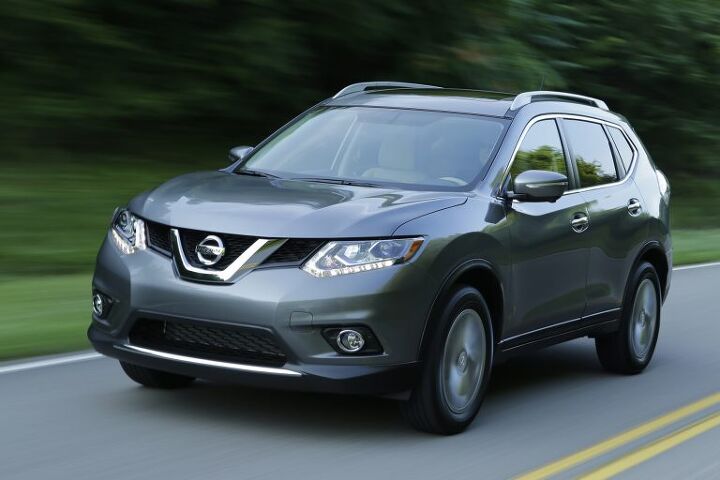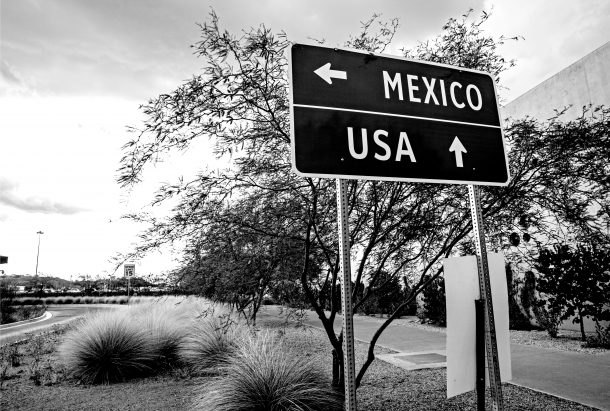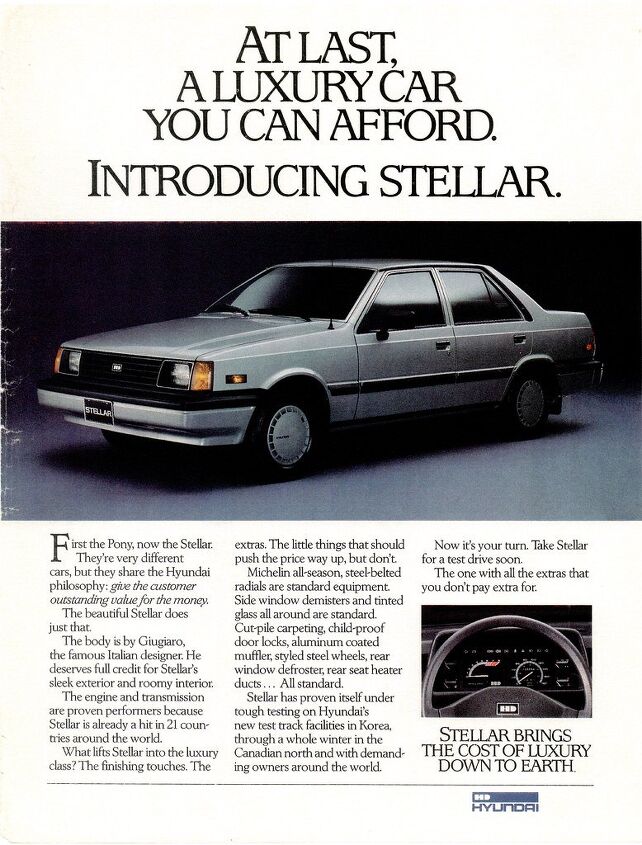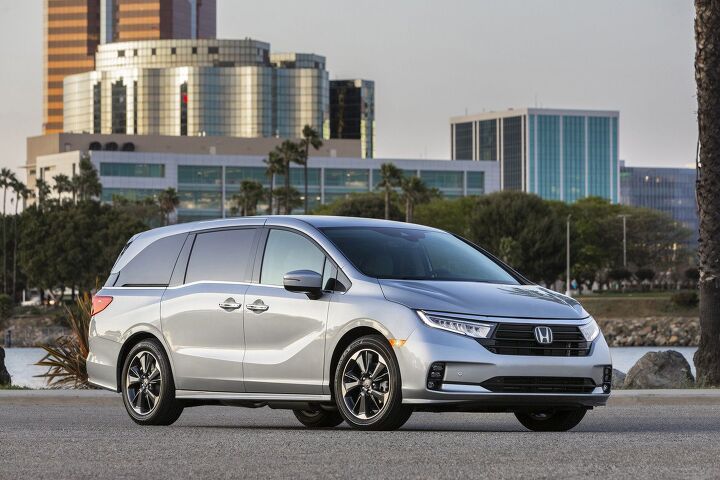#canada
Canadian Trucker Protests Continue, Aussies Launch 'Convoy to Canberra'
With supply lines being of particular importance these days, truckers are leveraging their role to encourage government to see things their way. Canada’s Freedom Convoy reached Ottawa on Friday to demand officials end pandemic-related restrictions it believes are wreaking havoc on the economy and the protests have yet to stop.
While this all started with U.S. and Canadian truckers urging the government to abandon border restrictions that forced all drivers to be vaccinated and confirmed as COVID free (starting January 15th) or be forced to quarantine for 14 days, activists are now asking Ottawa to abandon all mandates or prepare itself for worsening disruptions to already ailing supply chains. They’ve since been joined by Australian truckers, who have formed the ‘Convoy to Canberra’ for similar reasons. Future demonstrations are also being prepared for the United States.
Stellantis Makes Decision on Vaccine, Truckers Head to Ottawa
Following the U.S. Supreme Court’s decision to block proposed OSHA regulations backed by the Biden administration, it was assumed that automakers would quickly begin weighing in on vaccine rules now that there would be no federal obligation. However, they’ve actually been keeping quiet on the matter, with Stellantis being the first manufacturer to walk back previous requirements.
While the automaker had previously been working up to companywide vaccine mandates, it pushed back its vaccine deadline for early January. This week, Stellantis confirmed that it will be abandoning the scheme entirely after suggesting that the existing compliance rates were sufficient. Though something tells me that executives have become aware of the swelling pushback against COVID restrictions and became concerned with the optics.
Nissan Recalling 793,000 Rogue SUVs Over Fire Risk
While alchemy has famously spent the better part of recorded history trying to transmute lead into gold, the automotive industry has repeatedly managed to achieve the lesser-known act of sorcery where water is converted into fire. This usually occurs when humidity ends up corroding an essential electrical component, resulting in fire risk that becomes the deciding factor in a recall campaign.
This week’s corporate conjurer is Nissan, which has decided to call back 793,000 Rogue SUVs in the United States and Canada.
Canada Joins Mexico in Trade Dispute Against United States
Mexican and Canadian officials have been dropping hints that they’re not all that enthusiastic about the United States-Mexico-Canada Agreement (USMCA) since before Enrique Peña Nieto, Donald Trump, and Justin Trudeau all sat down to sign it in 2018. But just getting to that point required months of formal negotiations that rarely looked to be all that productive.
Sadly, things don’t seem to have changed now that the USMCA is in full effect. Last week, Mexico requested a dispute settlement panel under the terms of the trade pact to help resolve disagreements about the surprisingly contentious automotive content stipulations that determine whether or not vehicles and parts will be slapped with tariffs. Under the previous North American Free Trade Agreement (NAFTA), 62.5 percent of the vehicle’s components had to be sourced from member nations to be considered tax-exempt. In an effort to spur localized production, USMCA increased that number to 75 and not everyone is thrilled with the updated content requirements with Mexico claiming it’s not even sure how to apply them. Canada now intends to formally sign onto Mexico’s complaint against the U.S. over their divergent interpretation of rules.
Rare Rides: The 1987 Hyundai Stellar, Korean Midsize and Ford Cousin
The Rare Rides series has featured just two Hyundai offerings in past entries, the affordable Pony that Canadians loved, and a Mitsubishi Precis that was a rebadge of the Excel. Today’s larger Rare Ride was sold alongside those two in places outside the United States. Meet Stellar.
U.S. and Mexico Can't Come Together On Light Vehicle Rules
When the United States abandoned the North American Free Trade Agreement (NAFTA) to embrace the United States-Mexico-Canada Agreement (USMCA), it did so under the premise of crafting a better trade arrangement for itself. Established in 1994, NAFTA created a trilateral trade bloc that encouraged commerce between nations. But critics have accused it of encouraging the offshoring of U.S. jobs and dramatically suppressing wages — particularly within the automotive and manufacturing sectors.
Signed in 2018, and revised the following year, the USMCA was supposed to remedy those issues. But it’s been difficult to get all parties on board, especially when it comes to those persnickety rules of origin that stipulate how much of a vehicle’s hardware needs to be sourced from member nations.
Canadian Government Now Wants All Vehicles Zero-Emission By 2035
Canadians Using Cabs to Avoid Quarantine Restrictions
With Ontario embracing some of the strictest lockdown restrictions in the West and giving the police force carte blanche when it comes to enforcing public health, many Canadians have told us they’re not exactly enthralled with the idea of notifying their government that they’ve been out of the country. This is doubly true if they’ve just flown in by plane because the nation now requires a few days’ stay in a hotel as part of its mandatory 14-day quarantine for those traveling by air.
Due to the added time, cost, and general hassle of booking yourself into a hotel for 3 nights — awaiting the results of a mandatory COVID test before you’re technically allowed to go home to continue self-isolation — some travelers have opted to utilize ground transportation for the explicit purpose of avoiding restrictions. Rather than flying all the way into the Great White North, Canadians are flying into neighboring American airports and then hailing a taxi that will take them across the border.
QOTD: Change the World's Climate by 2030 or Just Talk About It?
The world’s climate has been centerstage the last two days. President Biden and other world leaders have vowed to reduce global warming by making drastic changes. Will they follow through?
At the 2015 Paris climate accord, then-President Obama set greenhouse gas reduction at half what Biden has proposed. Former President Trump, Obama’s successor, did little to forward this, but is it realistic for Biden, who served as Obama’s vice president, to double down on Obama’s goal in a relatively short time frame?
Quebec Banning Gasoline Dependent Passenger Vehicles in 2035
On Monday, the Canadian province of Quebec announced it would be joining California and numerous European locales in the banning of gasoline-powered automobiles. Announced during a meeting regarding the region’s green economy plan, the French-speaking province said all new vehicles sold after 2035 would have to be entirely electric. Then there was a slight derailment as Premier François Legault used the occasion to publicly decry that it was “totally unacceptable” that some shop owners in Montreal are failing to greet customers in French and that the situation needed to be remedied immediately. Montreal Mayor Valérie Plante agreed, saying “clients must be able to get served in French. Period.”
One battle at a time, heroes. Justice will be served (and in glorious French) to those English-speaking heathens and their foul-smelling cars soon enough.
Unifor Ratifies GM Labor Agreement, Oshawa Saved
Unifor members overwhelmingly ratified a new three-year contract with General Motors, effectively ending the union’s 2020 auto bargaining with Detroit automakers. Members backed the contract with 85 percent approval and secured meaningful investments into Canada’s automotive industry, including the $1 billion (USD) investment that saves Oshawa Assembly. It’s an important victory for the union and the Canadian auto workers it represents.
“This contract solidifies and boldly builds on GM’s Canadian footprint, with a $1.3 billion dollar investment that brings 1,700 jobs to Oshawa plus more than $109 million to in-source new transmission work for the Corvette and support continued V8 engine production in St. Catharines,” said Unifor National President Jerry Dias. “Jobs at all three Canadian sites are secure for the life of this agreement, including at the Woodstock Parts Distribution Centre, which will also see upgrades.”
Unifor Gets Something Done, Oshawa to Reopen
The closed General Motors plant in Oshawa, Ontario, will be reopening after the automaker reached a deal with Canadian workers. GM says that it will invest up to $1.3 billion in its facility and hire up to 2,000 workers. It’s an impressive outcome for a region that looked fated to struggle at maintaining automotive jobs for years to come. While the tentative three-year deal with Unifor has yet to be approved by workers, we’re doubtful they’ll be anything but supportive.
Despite being the victim of GM’s restructuring program and closing shop in 2019, the historic Oshawa Car Assembly (est. 1907) appears poised to once again begin churning out Chevrolet Silverado and GMC Sierra pickups for the masses.
Unifor Prepares to Strike After FCA Negotiations Go Sideways [UPDATED]
Canada’s preferred choice in unions, Unifor, warned that contract negotiations with Fiat Chrysler Automobiles were progressing slower than anticipated over the weekend. By Wednesday, news of a strike had begun brewing over social media. Local 444 was issuing FCA-WAP bargaining updates on Twitter and Facebook that included marching orders in the event that the day’s discussions didn’t end in a handshake.
“To ensure we are prepared for a strike, or strike coordinators have been working to finalize the details needed in order to begin, if and when necessary,” the union wrote to members. “If a tentative agreement is reached by 11:59pm October 14th, without an extension in place, then Local 444 along with brothers and sisters across the country at all FCA facilities will be on strike. As the talks continue late into the night, any updates will be posted to our social media pages and web page.”
That scenario is looking increasingly likely, especially as Unifor has explained there was little progress to report all afternoon. It also opened this week suggesting contract talks were “not quite where we feel [they] should be with this limited amount of time left on the clock.”
2021 Toronto, Montreal Auto Shows Will Be Online Only
Not that people have any leftover hope of enjoying what was once considered a normal life, but the Canadian International AutoShow (CIAS) is moving entirely online for 2021. It’s French Canadian equivalent Salon International de l’Auto de Montréal (MIAS) has also been relegated to the digital world as a way to kick off another year of absolutely nothing happening.
Obviously, this is being done to protect the world from itself and ensure the country remains on the mend indefinitely. But some provinces are said to be easing lockdown restrictions and reopening schools, suggesting the world may not be a practical joke played entirely at our collective expense. There’s a palpable fear among event organizers, however, especially if theirs happens to be indoors and include words like “international” in the title. Nobody wants to be the person who relaunched COVID-19 around the world, even if contagion rates have dropped and hospitals have better ways of treating the virus.
Inequality Among Minivans? Canuck Buyers Face a Pricier Honda Odyssey
Facing off against a stalwart Chrysler Pacifica and reborn Voyager, all-new Kia Sedona, and newly hybridized Toyota Sienna, the 2021 Honda Odyssey lopes into the coming model year with a mild refresh in tow.
Minor trim and content enhancements complete the mid-cycle overhaul, but Odyssey aficionados living north of the border are in for a shock.














![Unifor Prepares to Strike After FCA Negotiations Go Sideways [UPDATED]](https://cdn-fastly.thetruthaboutcars.com/media/2022/07/19/9164468/unifor-prepares-to-strike-after-fca-negotiations-go-sideways-updated.jpg?size=720x845&nocrop=1)













Recent Comments